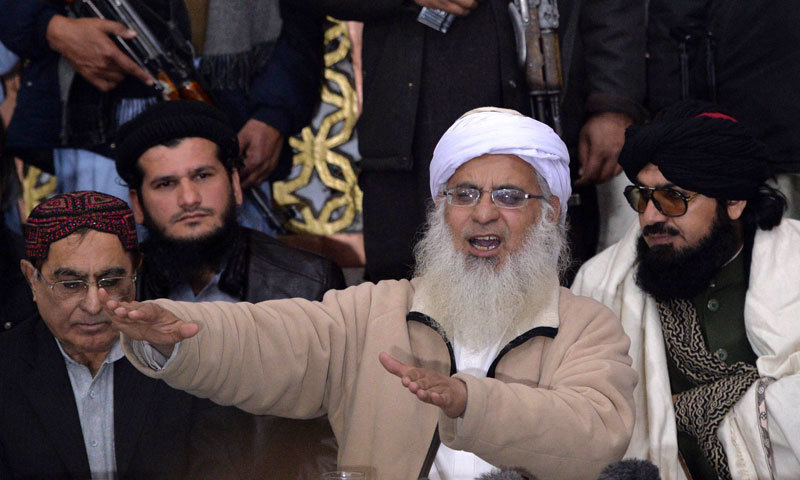Since taking over in July 2018 Prime Minister Imran Khan and his advisors promised this was a Naya Pakistan where things would be different. Every time there are terror attacks in Iran, India or Afghanistan, the government of Pakistan is extremely vocal about their determination to crack down on all forms of extremism and radicalism within Pakistan. If that is so then how does one explain that under this government there has actually been a resurgence of extremists and radical elements within Pakistan: from Hafiz Saeed’s ability to travel around the country, to Masood Azhar and Jaish e Muhammad’s resurgence through the Pulwama terror attacks and now the return of Abdul Aziz of the Lal Masjid fame.
A recent piece on Liberty South Asia looks at Aziz in detail. According to the author, “Maulana Abdul Aziz has the distinct notoriety of being one of the few Islamist clerics who is too radical for even the Pakistani state. As the head of Pakistan’s Lal Masjid (Red Mosque), Aziz waged an armed battle against Pakistani troops in 2007 – a battle the cleric famously tried to escape by dressing as a woman. His madrassah featured a library named after Osama bin Laden, and has unapologetically and publicly supported ISIS. Pakistani authorities have charged him with dozens of crimes, but they have consistently failed to convict him. Last year, authorities in Islamabad decided that he would no longer be allowed to lead prayers at Lal Masjid, one of the capital’s oldest state-owned mosques. Police and Rangers were assigned as security patrols to prevent Aziz from entering.”

However, “Last Friday, however, Abdul Aziz was back at the pulpit, delivering a fiery sermon denouncing democracy as “un-Islamic” and advocating the establishment of a radical Islamic theocracy. Abdul Aziz’s rhetoric and influence is worrying in any context, but particularly so given that he was able to walk into a state-owned mosque in the nation’s capital and deliver a sermon despite being specifically barred form doing so. The Islamabad Capital Territory (ICT), which administers the mosque, tried to downplay the incident by explaining that police and Rangers posted outside the mosque were “caught by surprise,” and that there were fewer security personnel than normal on that day. The ICT’s excuse, however, actually adds to concerns. Why didn’t the security personnel who were there not stop Aziz? Why did they allow him to deliver his sermon uninterrupted? And, perhaps most importantly, what was the response from those attending Jummah prayers at the mosque? An ICT official told reporters that Aziz would not be allowed to enter next week – but that avoids the more pressing questions of how he was able to enter in the first place, despite the presence of security personnel tasked with stopping him, and what was the popular reaction to the cleric’s return?”
Finally, “As Pakistan tries to convince the global Financial Action Task Force to remove it from a list of countries involved in providing monetary assistance to terrorism and related causes, authorities have been making an effort to finally appear serious about cracking down on violent extremism. Having a pro-terror cleric walk into a state-owned mosque in the capital and deliver a sermon raises a troubling question: If Pakistan in unable to stop anti-state extremists in Islamabad, how can they credibly claim to be decisively cracking down on extremists that have historically operated in league with the state?”
![]()





